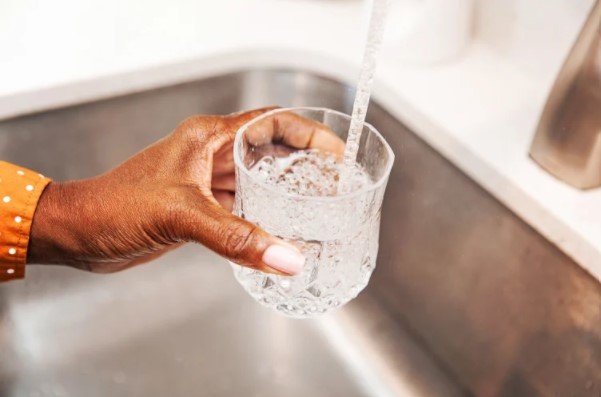
Many people struggle with body image issues, particularly regarding arm fat. The desire for slim, toned arms often stems from societal pressures that glorify certain beauty standards, leaving individuals feeling self-conscious when their arms don’t meet those expectations. Various factors contribute to the accumulation of unwanted arm fat, including aging, genetics, and lifestyle choices. This can lead to visible sagging or flabbiness in the upper arms, which often intensifies feelings of dissatisfaction with one’s appearance. Social media plays a significant role in this phenomenon by promoting unrealistic beauty ideals, creating a sense of urgency for many to pursue solutions. As a result, individuals often seek surgical options or non-invasive procedures like liposuction and CoolSculpting to achieve their desired look. Ultimately, improving body aesthetics is not just about personal preference; it can influence clothing choices and social activities where one’s arms are more exposed. Understanding these motivations can help clarify why so many choose to invest in treatments aimed at reducing arm fat and boosting self-confidence.
Summary of Effective Arm Fat Reduction Methods
This blog explores a variety of strategies for reducing arm fat and achieving toned muscles. It emphasizes a holistic approach, combining targeted exercises with overall weight management. Strength training is crucial, focusing on workouts that engage the biceps, triceps, and shoulders to promote muscle growth while burning fat. Alongside these methods, a non-invasive arm fat reduction method offers an alternative option for those seeking quicker results without surgery. Cardiovascular activities, such as running or cycling, are also highlighted for their role in increasing calorie expenditure.
Nutritional guidance is another essential aspect, advocating for a diet rich in lean proteins, healthy fats, and fiber while reducing processed sugars and unhealthy snacks. The blog encourages readers to set realistic goals to stay motivated during their journey toward toned arms. Consistency is underscored as key to achieving long-term results; regular exercise paired with mindful eating can lead to noticeable improvements. Additionally, staying hydrated is essential, as water supports overall health and metabolic processes that facilitate fat loss. By integrating these methods into daily routines, readers can work toward their goal of achieving well-defined arms.
Understanding Arm Fat
Body Fat Distribution Explained
Body fat distribution is how fat is stored in different areas of the body, which can impact overall health. There are generally two main patterns of fat distribution: central obesity and peripheral fat distribution. Central obesity refers to fat accumulation around the abdomen and torso, often characterized by an “apple shape.” This type of fat is more concerning as it is associated with various health issues, including heart disease, diabetes, and metabolic disorders. In contrast, individuals with a “pear shape,” who store excess weight in the hips and thighs, typically have a lower risk of these health conditions.
Hormonal influences are significant in determining body fat distribution patterns. For instance, estrogen promotes fat storage in the lower body, while testosterone is linked to abdominal fat accumulation. Genetics also plays a critical role in where the body tends to store fat. Lifestyle choices, such as diet and physical activity, further affect fat distribution; certain exercises can help reduce fat in specific areas, including the abdomen. Understanding these dynamics is vital for addressing health risks related to excessive body weight in various body regions.
Why Arm Fat Occurs
The prevalence of arm fat can be attributed to several factors, including genetics, lifestyle habits, and overall body composition. Some individuals are genetically predisposed to store fat in the upper arms, making them more prone to arm fat accumulation. A sedentary lifestyle contributes to this issue; a lack of regular physical activity can lead to muscle loss and increased fat gain.
Diet also plays a critical role; consuming high-calorie foods, particularly those that are processed, can lead to weight gain throughout the body, including the arms. Hormonal changes, often due to aging or hormonal imbalances, can affect where fat is distributed. Stress may also contribute to increased arm fat, as it can lead to emotional eating and changes in metabolism. Recognizing these factors is essential for understanding the prevalence of arm fat and highlights the importance of exercise and nutrition in managing body shape and overall health.
Why Reducing Arm Fat is Important
Addressing excess arm fat is significant from both health and aesthetic perspectives. Excess fat in the arms may indicate broader weight issues, which could lead to health complications such as heart disease, diabetes, and joint problems. By focusing on reducing arm fat, individuals can promote better overall health and encourage lifestyle choices that contribute to well-being.
From an aesthetic standpoint, many strive for toned arms to boost their appearance and self-confidence. Achieving a more sculpted look can enhance self-esteem, positively affecting social interactions and personal relationships. It’s important to recognize that the desire to reduce arm fat goes beyond cosmetic concerns; it reflects a commitment to physical fitness that can improve mobility and functionality in daily life. By incorporating targeted exercises and a balanced diet, individuals can achieve not only a desirable appearance but also better health outcomes over time. Viewing arm fat reduction through both health and aesthetic lenses reinforces the importance of fostering a positive body image while pursuing overall wellness.
Arm Fat Reduction Treatment FAQs
What is the best procedure to reduce arm fat?
The most effective approach to reducing arm fat combines targeted exercises, overall weight management, and improved nutrition. Including strength training exercises like tricep dips, push-ups, and dumbbell curls can help build muscle and increase metabolism. Aim to engage in arm workouts two to three times weekly for optimal results. Pairing resistance training with cardiovascular activities such as running or cycling enhances calorie burning and promotes fat loss throughout the body.
Maintaining a healthy diet is crucial. Focus on whole foods like fruits, vegetables, lean proteins, and whole grains, while minimizing processed sugars and unhealthy fats to aid in fat reduction. Staying hydrated is also important, as proper hydration supports digestion and helps manage cravings. Consistency is essential; integrating regular exercise with healthy eating habits ensures sustainable progress over time. Remember, patience is key; significant results may take several weeks or months, but commitment increases the likelihood of success and improved overall fitness.
How do you get rid of arm fat?
Getting rid of arm fat can be a significant goal for those looking to tone their upper body. To achieve this, integrating regular exercise with focused strength training is essential. Engage in exercises like push-ups, tricep dips, and bicep curls to strengthen the muscles in the arms. Cardiovascular exercises, such as running or cycling, are also important for reducing overall body fat while promoting calorie burn.
Nutrition plays a vital role in this process. Eating a balanced diet rich in whole foods—fruits, vegetables, lean proteins, and healthy fats—provides essential nutrients while minimizing excess sugars and unhealthy fats that contribute to weight gain. Proper hydration and sufficient sleep also support effective fat reduction and muscle recovery. Consistency is crucial; setting achievable workout goals each week can help build long-term habits that lead to lasting results. By combining strength training with cardiovascular activities and a healthy diet, individuals can work toward more toned arms while enhancing their overall health.
What is the best non-surgical fat removal for arms?
For non-surgical fat removal in the arms, several popular options are available. One effective method is CoolSculpting, which uses cryolipolysis technology to freeze and eliminate fat cells in targeted areas. This treatment is relatively painless and requires minimal downtime, making it an attractive choice for body contouring.
Another alternative is SculpSure, which uses laser technology to destroy stubborn fat cells while promoting skin tightening. Radiofrequency treatments are also beneficial, targeting fat reduction while enhancing skin elasticity and firmness. Ultherapy employs ultrasound energy for lifting effects alongside subtle fat reduction in specific arm areas. Each of these methods has unique benefits, so consulting with a qualified professional to assess individual needs and goals is crucial before selecting a treatment plan. A personalized approach will ensure the best outcomes for those looking to enhance their arm appearance without surgical intervention.
What is the best procedure for saggy arms?
To address sagging arms effectively, several procedures can be considered based on individual needs and aesthetic goals. One commonly recommended option is an arm lift, or brachioplasty, which involves surgically removing excess skin and fat for a more toned appearance. In cases where localized fat pockets contribute to sagging, liposuction may also be used without extensive skin removal.
Non-surgical options, like laser treatments or radiofrequency therapy, can gradually tighten skin without invasive surgery, although their results may not be as dramatic as surgical interventions. For those interested in fitness solutions, engaging in strength training exercises targeting the triceps and surrounding muscles can help improve firmness in the arms over time. It’s crucial for anyone considering procedures for sagging arms to consult with a board-certified plastic surgeon or dermatologist for tailored recommendations that prioritize safety throughout the process.
Read more: https://thewiresolution.com/







